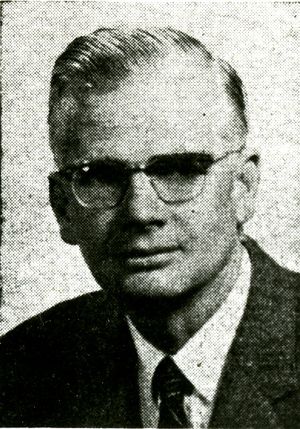Sterling Beckwith
- Birthdate
- 1905/10/29
- Birthplace
- Carthage, MO, USA
- Death date
- 1992
- Associated organizations
- Allis-Chalmers
- Fields of study
- Power
- Awards
- AIEE Lamme Medal
Biography
Sterling Beckwith was born in Carthage, MO, on October 29, 1905. After graduation from Stanford University in March of 1927 with a degree in engineering, he entered the Westinghouse Graduate Training Course and design School and was design engineer on large generators. During this time, he obtained a MS in electrical engineering from the University of Pittsburgh and did additional work towards a PhD in physics. From 1931 to 1933 he was a part-time teaching assistant at the California Institute of Technology and at the same time completed his PhD at that school. From 1933-35, Dr. Beckwith was assistant engineer with the Metropolitan Water District of Southern California evaluating the stability of their large pumping system. From 1935 until 1952, he worked for Allis-Chalmers in Milwaukee where he was design engineer and later engineer-in-charge of alternating current generators. During this period, he worked on many new developments, including the thrust type hydrogen shaft seal, synchronous condensers for arc furnace loads, the largest two-pole short circuit test generator, a static excitation system using magnetic amplifiers, the “tube type” cooling for large motors, the largest explosion-proof motor, the Manhattan Project, a special analog computer for magnetic circuits, and the first super-charged (direct cooled) generators.
In 1952 he left Westinghouse to work as an industry consultant. By the end of his life, Dr. Beckwith held more than 40 patents and authored a dozen technical articles. He was co-author of the Synchronous Machine Section of the Standard Handbook for Electrical Engineers. He was a fellow of the IEEE, and a member of the Conference Internationale des Grandes reseaux Electriques, Sigma XI, Tau Beta Pi, Eta Kappa Nu, and the Milwaukee Engineer’s Society.
In 1958, dr. Beckwith was awarded the IEEE's Lamme Medal for his contributions to power generation and electric machine technology.
Sterling Beckwith died in 1992.
